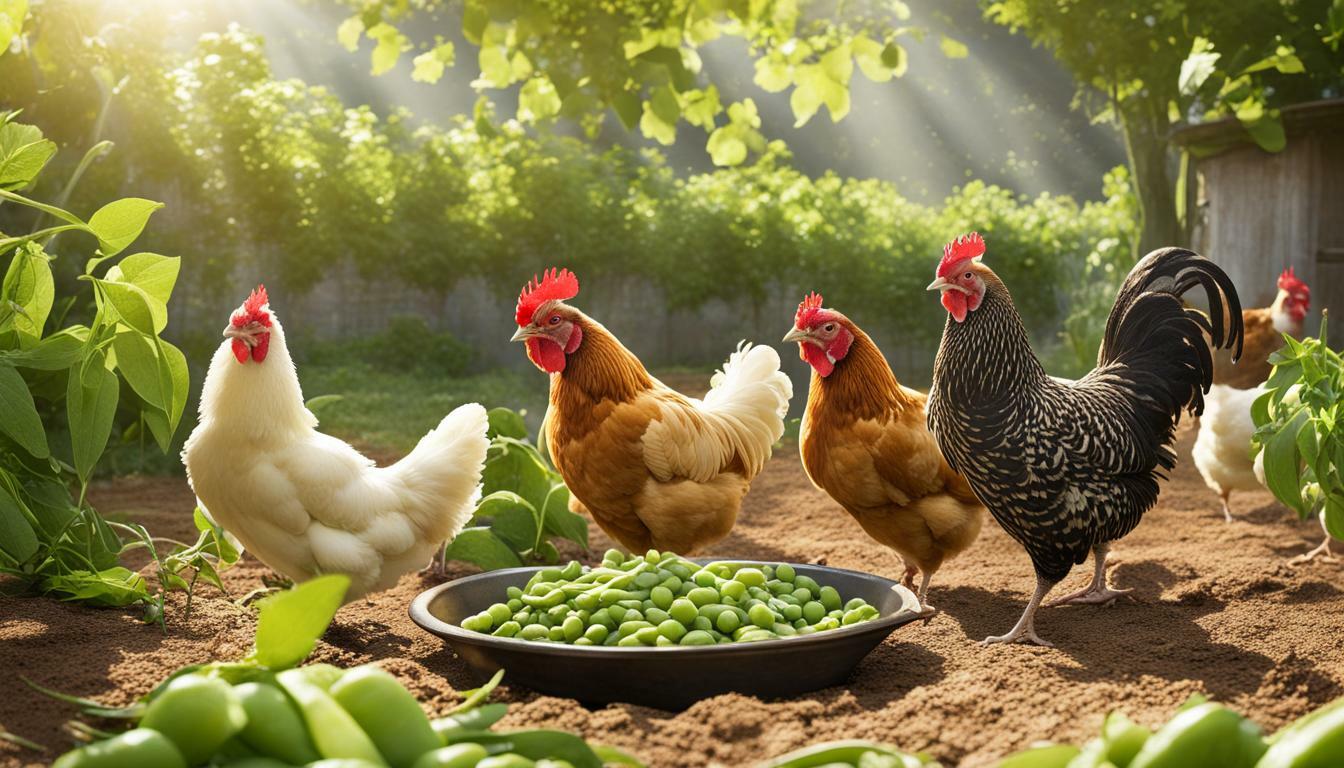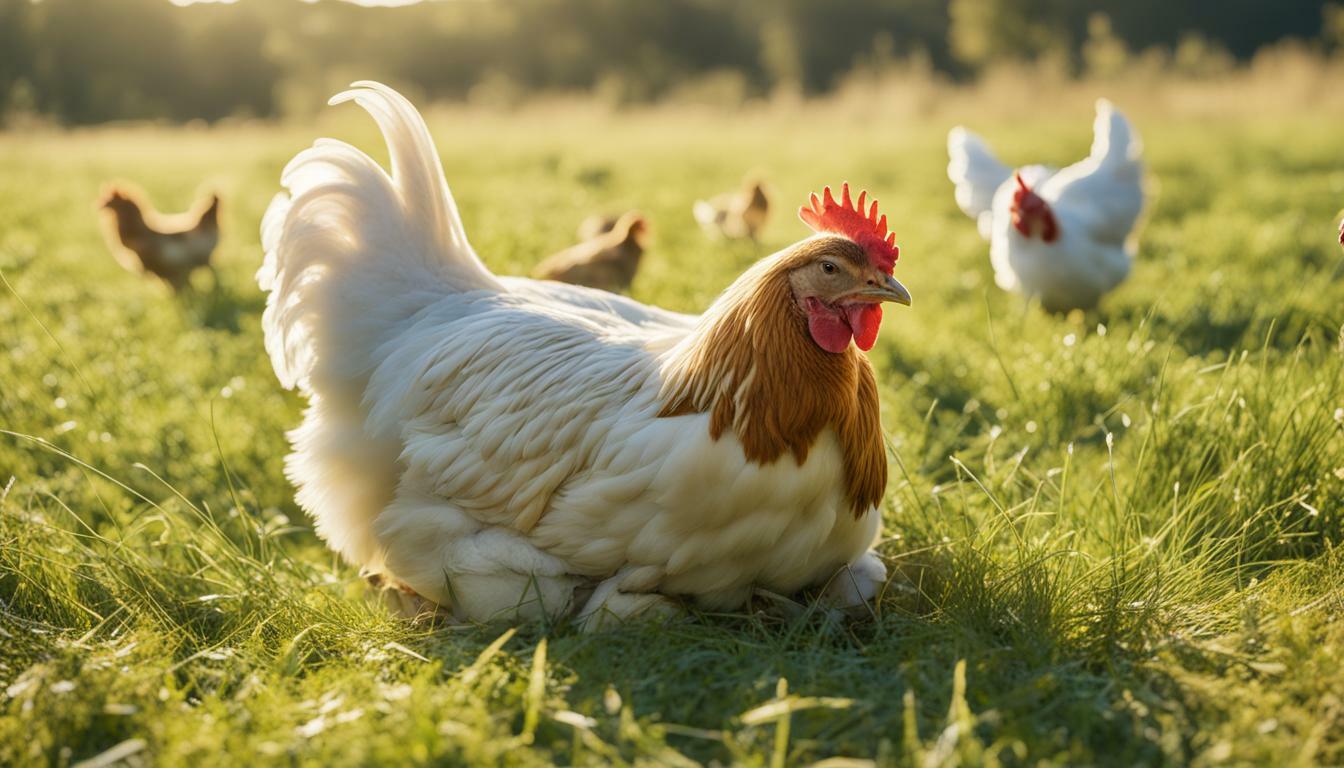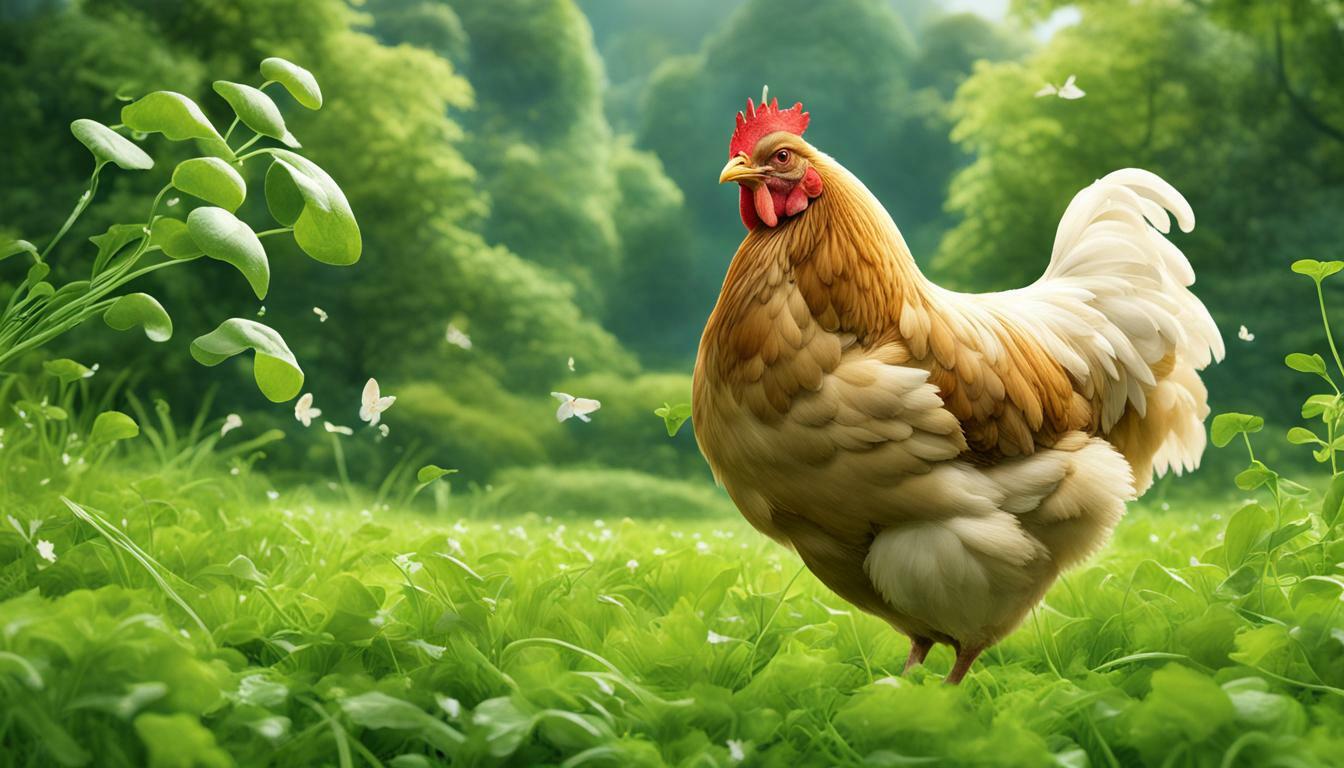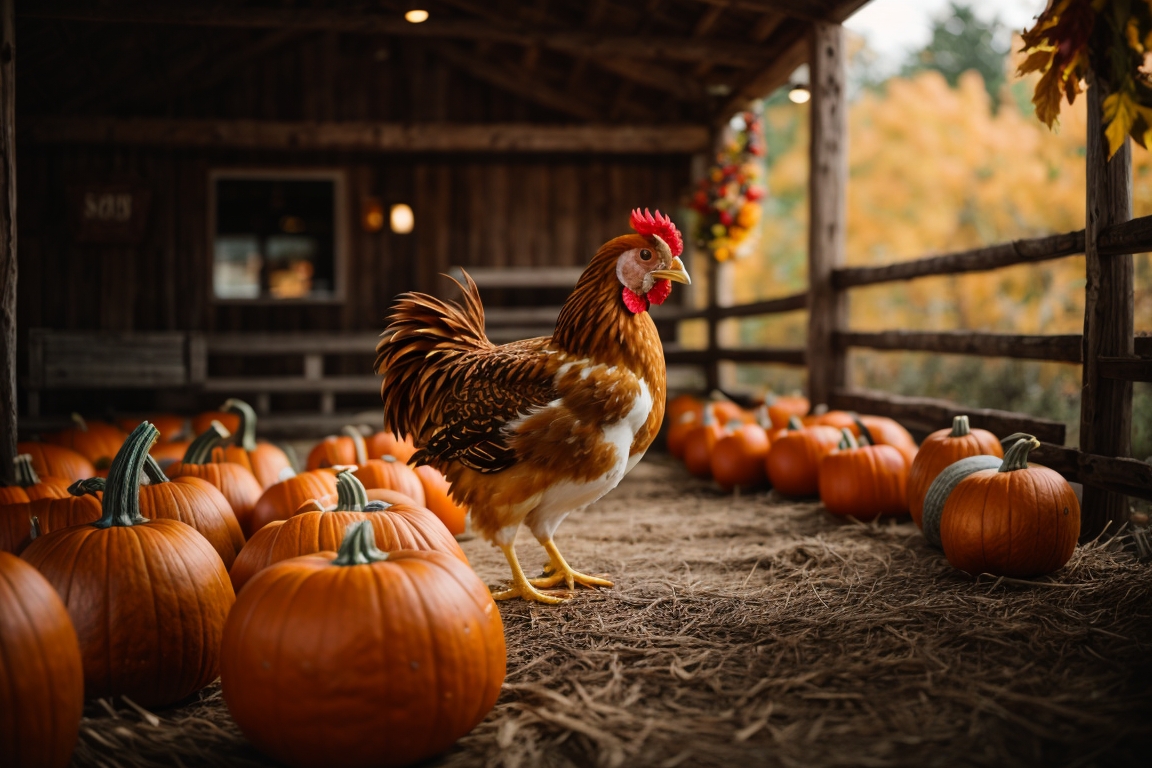Can Chickens Eat Snap Peas? Discover the Answer Here

Table of content:
- Can Chickens Eat Snap Peas?
- Are Snap Peas Safe For Chickens to Eat?
- What Vegetables Can Chickens Eat?
- Are Peas Good for Chickens?
- Can Chickens Eat Raw Peas?
- What Fruits and Vegetables Are Toxic to Chickens?
- How Much Vegetable Matter Should Chickens Eat Daily?
- Do Chickens Like Snap Peas?
- What Are the Benefits of Feeding Snap Peas to Chickens?
- Should You Cook Snap Peas Before Feeding Them to Chickens?
- Final Thoughts
Chickens can eat snap peas in moderation as part of a balanced diet. Snap peas provide important vitamins, minerals, and fiber. But chickens should not eat too many, as peas contain complex carbs. Here’s what you need to know about feeding snap peas to chickens.
Can Chickens Eat Snap Peas?
Yes, chickens can safely eat snap peas as an occasional treat. Snap peas are not toxic to chickens. In fact, they offer some nutritional benefits. But peas should be fed in moderation since they are high in complex carbs.
Chickens enjoy pecking at fresh veggies like snap peas. The crisp texture and sweet flavor make peas a fun treat. Just don’t overdo it, as too many peas can lead to weight gain.
Are Snap Peas Safe For Chickens to Eat?
Snap peas are considered safe for chicken consumption. There are no toxic compounds or choking hazards. Snap peas can be fed to chickens raw or cooked.
It’s generally best to introduce new foods slowly to check for any individual intolerances. But most hens tolerate fresh snap peas without issue. Monitor your flock after initially offering this veggie.
What Vegetables Can Chickens Eat?
Chickens can eat a wide variety of fresh vegetables as part of a balanced diet. Good veggie choices include:
- Lettuce – Romaine, red leaf, green leaf
- Kale and other cooking greens
- Carrots – chopped
- Beets – chopped
- Zucchini or summer squash – grated or chopped
- Spinach and chard – chopped
- Broccoli and cauliflower – florets
- Cabbage – shredded
- Tomatoes – chopped
- Cucumbers – chopped
- Peppers – chopped
Focus on providing a diversity of vegetables. Chop or shred them into small pieces for easy eating.
Are Peas Good for Chickens?
Yes, in moderation peas can be a healthy addition to a chicken’s diet. Peas provide:
- Protein – supports muscle growth and egg production
- Vitamins A, C, K – supports immune function and overall health
- Minerals like zinc, iron, magnesium – important for metabolic functions
- Fiber – promotes good digestion and crop health
However, peas are high in starch and complex carbs. Too many can lead to obesity. Feed peas as a snack, not a staple.
Can Chickens Eat Raw Peas?
Yes, chickens can safely eat raw peas. In fact, they may prefer them fresh vs cooked.
Many backyard chicken keepers grow sugar snap or snow peas just for their hens. Offer peas still in the pod for your flock to peck at. This provides entertainment and encourages natural foraging behaviors.
For excess peas, simply shell and provide small amounts in a treat dish. No need to cook peas prior to feeding.
What Fruits and Vegetables Are Toxic to Chickens?
Some fruits and veggies can be harmful to chickens. Avoid feeding:
- Onions – raw, cooked, or powder
- Garlic – raw or powder
- Chives
- Leeks
- Shallots
- Avocados – contains persin toxin
- Potatoes – raw, green parts contain solanine
- Tomato leaves and stems – contain toxic alkaloids
These foods can cause hemolytic anemia in chickens. Introduce cautiously and monitor for reactions.
How Much Vegetable Matter Should Chickens Eat Daily?
Chickens should get 10-15% of their daily diet from fresh vegetables and fruit. For example:
- 4-5 ounces per day for a 5 lb hen
- 8-10 ounces per day for a 10 lb rooster
Focus on a wide variety of plant foods. Chickens enjoy greens, fruits, veggies, sprouts, edible flowers, etc. This provides balanced nutrition.
Scatter diced veggies in the run or coop to encourage natural foraging behaviors. You can also offer chopped produce in a shared dish. Provide a few pieces per bird 2-3 times per week.
Do Chickens Like Snap Peas?
Most chickens enjoy pecking at crisp snap peas straight from the vine. The sweet flavor and pop of the peas amuses them!
You may see your hens eagerly awaiting the garden’s first pea harvest. They instinctively know peas provide a tasty treat.
Consider planting a specific section of sugar snap peas just for your flock. Trellising the vines allows easy access for pecking and foraging.
Not all chickens like peas. Try introducing them slowly to gauge each bird’s preferences. But for most, sugar snap peas become a favored snack.
What Are the Benefits of Feeding Snap Peas to Chickens?
Snap peas offer several benefits for a chicken’s health:
- Protein for growth, muscle, and feather development
- Vitamin A for immunity and reproductive health
- Vitamin C for collagen production and disease resistance
- Vitamin K for blood clotting and bone strength
- Iron for oxygen circulation and energy
- Magnesium for enzyme function and nerve health
- Zinc for metabolism, digestion, and egg production
- Fiber for healthy crop function and digestion
Peas also add variety to the diet, encourage foraging, and provide mental stimulation. All important for overall wellbeing!
Should You Cook Snap Peas Before Feeding Them to Chickens?
Cooking is not required prior to feeding snap peas to chickens. Raw peas are safe and nutritious.
Some owners prefer to lightly steam or blanch peas to soften them up. This can make peas easier to digest. But the nutrients in raw peas are more bioavailable to chickens.
If your peas are overripe or tough, a quick boil can tenderize them. Then simply chop and mix into feed or offer peas in a dish.
Undercooked dried peas can be harmful, so always fully boil mature peas. But fresh snap peas can be fed raw or cooked.
Final Thoughts
When fed in moderation, snap peas make a nutritious occasional treat for backyard chickens. Just go light on peas, as the high carb content can lead to weight gain. A few raw peas here and there, or vines for pecking, provide enrichment without overdoing it on peas. Focus on a diverse diet with plenty of leafy greens, sprouted grains, and quality protein sources. This will keep your flock happily foraging and laying healthy eggs!
Welcome. I’m Adreena Shanum, the proud owner of this website, and I am incredibly passionate about animals, especially poultry. I founded adreenapets.com as a labor of love, stemming from my desire to share my knowledge and experiences with poultry enthusiasts worldwide.




